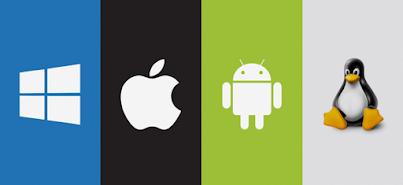Functions of an Operating System:
- Security: Uses techniques like password protection to protect user data and prevent unauthorized access.
- Control over system performance: Monitors overall system health, records the response time between service requests and system response, helps improve performance, by providing important information needed to troubleshoot problems
- Job accounting: Keeps track of time and resources used by various tasks and users, which can be used to track resource usage for a particular user or group of users
- Error detecting aids: Constantly monitors the system to detect errors and avoid malfunctioning of computer system
- Coordination between software and users: Coordinates and assigns interpreters, compilers, assemblers, and other software to the various users of the computer system
- Memory Management: Keep track of primary memory, i.e., which bytes of memory are allocated to which user and which are not. In multiprogramming, OS decides the order in which processes are granted access to memory and for how long.
- Processor Management: In multiprogramming, OS decides the order in which processes have access to the processor, and how much processing time each process has (process scheduling). OS is responsible for allocating and deallocating CPU or processor.
- Device Management: Manages device communication via their device drivers, keeps track of all connected devices, designates a program for every device and for how long, allocates and deallocates devices in an effective and efficient way.
- File Management: Keeps track of where information is stored, user access settings and status of every file, etc.
Read Previous: What is an Operating System
Coming Next: Services Provided by an OS
Follow me here:

Comments
Post a Comment